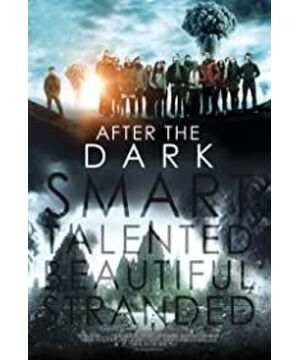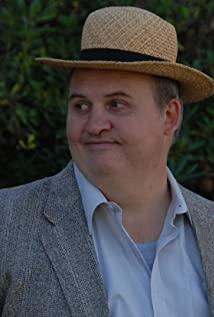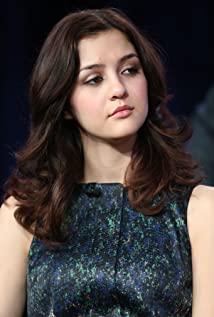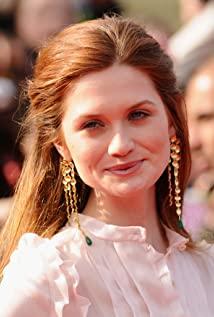The beginning of the film is a warm scene on a couple's bed in high school, the heroine and the hero. Name two graduating high school students who will complete their final philosophy class. The whole theme is about to revolve around this class, and reason and sensibility are torn apart in front of this philosophy.
Since it is related to philosophy, several classic philosophical problems inevitably arise, such as two tracks, 5 people on one side and 1 person on the other, you have the right to let the train choose the track, the moral and ethical issues of how to choose, the monkey infinite time theorem, The life and death test of friendship and so on. What does philosophy mean to ordinary people? Really like the movie says: Philosophy is to reality what masturbation is to sex? The philosopher professor proposed to do a nuclear bomb attack doomsday conjecture experiment: there is a closed shelter, designed to accommodate only 10 people for a year, and the most important people who escaped take the heavy responsibility of reproducing human beings after the disaster. Facing 21 teachers and students, there is a need to choose. How to choose? A method of randomly drawing character cards and voting. There are organic crop growers, electrical engineers, clothing designers, hotel waiters, etc., and the philosophy teacher is an unidentified mysterious person. At first, the female protagonist refused without reason. The philosophy professor threatened whether he could get an A+ in the course and whether the male protagonist could successfully enter the university, so he really started the first experiment. Is it necessary for the professor to make such a threat?
The scene switches from the classroom to the experimental hypothesis, and feel it as reality. In the process of choosing 10 out of 21, the student who played the role of a poet was shot and killed by the professor before he finished his speech in the election campaign. The reason was that you would not choose a poet who is useless in the face of disaster, right? After the screening, the professor continued to shoot and kill the other 10 people who were eliminated. "You don't want to see them being scorched and tortured by the heat wave of the nuclear bomb, right?" This is the reason, and it is reasonable. But this made the heroine unhappy. Together with several others, they locked the professor out of the refuge. Of course, this experiment ended in failure. There is no password to go out, and the mysterious identity of the professor is officially the builder of the shelter, and only he knows the password.
The first experiment failed. Some students refused to accept the setting of this mysterious character, and then re-experimented for the second time. The same scene setting, the identity of the character card remains unchanged, but new restrictions are added, the male protagonist is gay, the doctor selected for the first time may carry the virus, some are infertile, etc., the personnel entering the shelter are rewashed Card. But the male and female protagonists and students with important roles are still listed, including the professor who only knows the escape code. The time progress bar is only halfway through, but it is conceivable that it still ends in failure. The gay attribute of the male protagonist angered the female protagonist, and he chose to work with the professor to carry out the man-making plan. 4 women of school age, with no results for 10 weeks. At this time, the professor suggested that all men must go out on the expedition. The partners who exchanged their partners in turn were strongly opposed, and they were even seriously injured in the dispute. In a fit of rage, they opened the exit and everyone died in the heat wave.
If you think about it, you will know that the movie will not end like this. The male protagonist discovered that the professor cheated and gave himself and the female protagonist specific character cards, which had been set in advance. At this time, the female protagonist also took the initiative to ask to do it again, but she had to choose herself to enter the shelter. Poets, bartenders, musicians, etc. with additional attribute skills are all listed. The result was that they all survived. The reason for the heroine is that everyone has been in refuge for a year, and they can play their respective strengths, please others, and live easily. Seeing this, perhaps the conclusion the movie wants to express has emerged, and we will make up the theme of the movie: the rational choice of life, sometimes it is better to live in a pleasant moment. Occupations that seem to be irrelevant have extraordinary meanings of their existence, and different people may have different understandings. So far, the philosophy-themed movie should be a success. Unfortunately, we were disappointed again. After looking at the progress bar, there were still nearly 20 minutes. Don't forget, there are a few details that have not been explained clearly: Why did the professor cheat, just a far-fetched education for the male protagonist to be late? The heroine refused for no reason at first, why did she finally ask for another one?
After class, the heroine took the initiative to stay, and the result was announced. She is a smart girl and chooses a mediocre male protagonist, which makes the professor incomprehensible and even a little annoyed, so she designed this survival game as a background to imply that the female protagonist chooses again, and if she is still rejected, she chooses to commit suicide. In the first experiment, the male protagonist was designated as an ordinary person, the professor was designated as a mysterious person, and the female protagonist chose the male protagonist, believing that the professor was a threat, and was rejected by everyone from outside the shelter, and the professor did not get an answer. In the second experiment, the professor mastered the escape code at the end of the disaster and was rejected for no reason, but the heroine still chose the male lead, but when her boyfriend cheated, she reluctantly chose the professor as revenge. The professor could not accept it and chose to die together. After two rounds of experiments, the professor decided that the heroine no longer liked him, and regarded herself as a threat, a tool of revenge, and decided to commit suicide by drinking bullets. But the plot turns, the male protagonist finds the experiment interference set by the professor (specially setting fixed roles for himself and his girlfriend, not random selection), the female idea will teach the intention, intend to save the professor, and then actively request a third experiment . Keep the previous settings unchanged, re-select the refugees from the perspective of human nature, and get a new answer: people are mortal, but dying with dignity in love is better than utilitarian survival. The heroine's intention to save the professor is relatively obscure, leaving behind the poet who was shot by the professor twice. And the poet in the eyes of the professor is also a symbol of himself in real life, wanting to end himself. After the class, the heroine stayed and comforted the professor: I didn't choose the hero because of you, but because I love him, so I don't have to hurt myself. Finally, the three replays of the professor going upstairs show this point of view. The first sitting after going upstairs corresponds to the first escape experiment, and there is no conclusion. The second suicide after going upstairs corresponds to the suicide chosen by the second experiment professor. The third time to go upstairs with eyes closed, corresponding to the relief after the third experiment.
You thought it was a philosophy-themed movie? joke! In fact, it is a rescue theme of an obscure "teacher-student love triangle". Philosophy, too, is just a wrapper for packaging.
View more about After the Dark reviews











